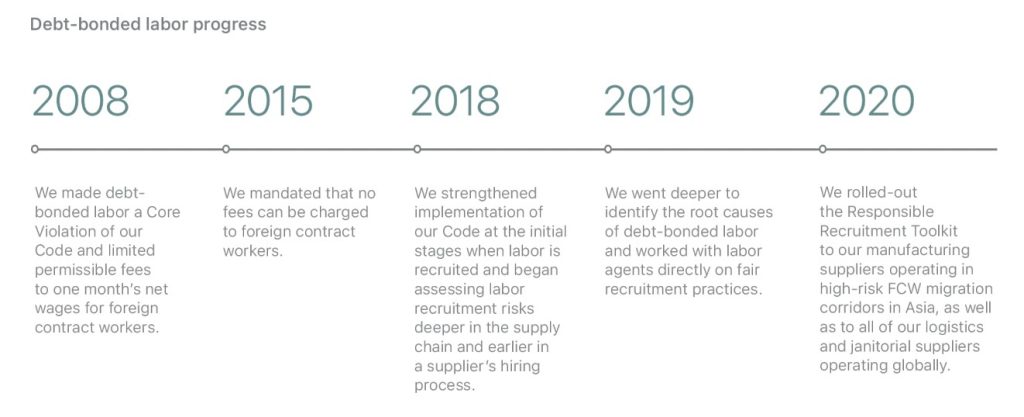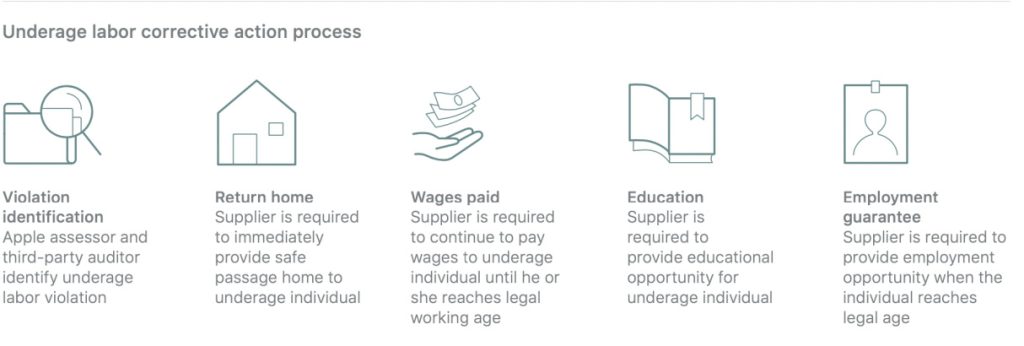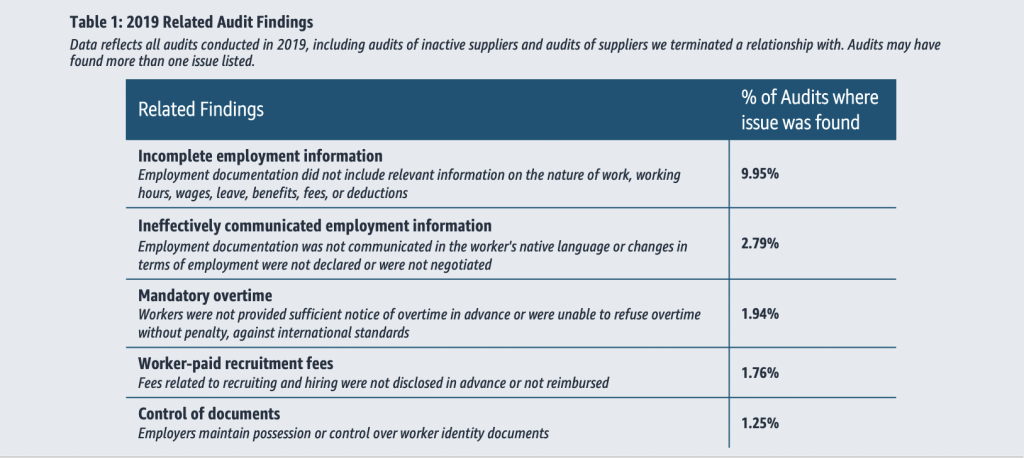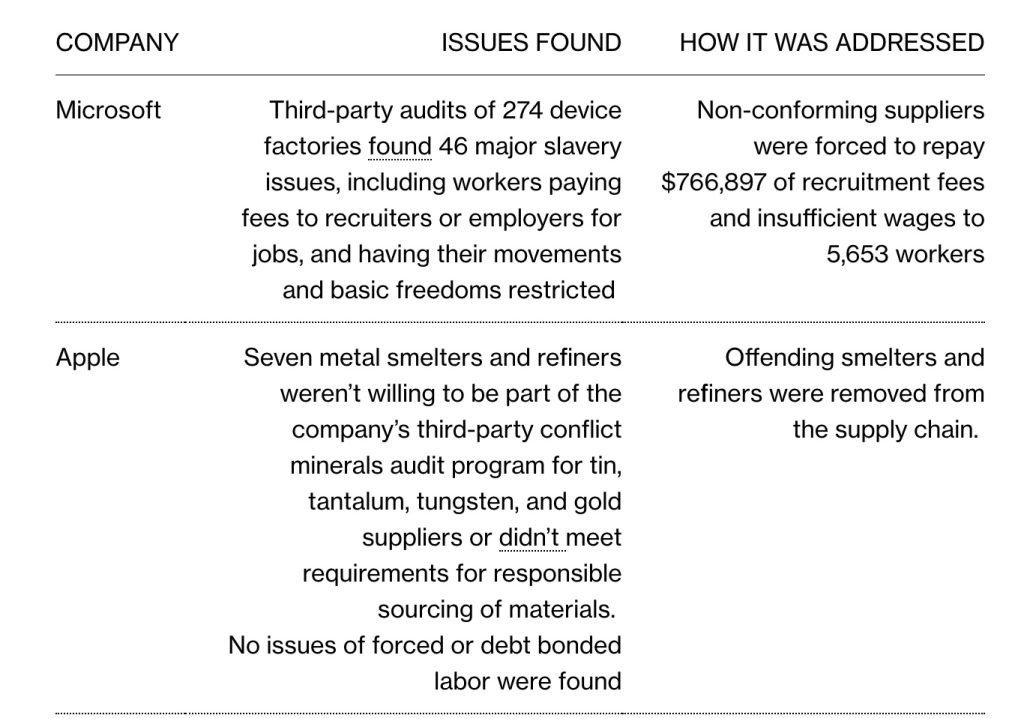Modern Slavery Exposed In Big Tech Supply Chains
Australia’s Modern Slavery Act has brought to light human rights violations hidden within the supply chains of big tech companies operating within the country. For example, tech giants Apple and Microsoft reported over 50 suppliers who did not meet compliance standards, while Amazon cited the discovery of human rights violations in 10% of their supplier base. These findings are hardly surprising, given that big tech companies have complex, global supply chains and direct connections to high-risk industries like mineral sourcing, metal refining, and electronics manufacturing. However, Australia’s ground-breaking act has brought greater transparency to the issue, obliging big tech to report findings and take more responsibility for their suppliers’ actions. This article explores modern slavery in the technology industry and steps big tech companies take to manage this risk.
Modern slavery challenges for Big Tech firms
Technology companies cite three significant challenges in slavery risk management.
Debt bonded labour
Debt-bonded labour is a form of modern slavery that occurs when a person is forced to work to repay a debt or other obligation. It can also involve withholding personal identity documents, making it impossible for the person to leave their job. Sometimes debt is incurred to get the job itself. For instance, unscrupulous recruiters charge an exorbitant “fee” to assist rural workers in finding jobs in urban areas or migrant workers to find a job in another country. Since most workers cannot afford to pay this fee, it is placed as a debt on them that they have to pay off once they get the job.
The risk of debt bondage is higher among certain groups, such as:
· Foreign and domestic migrant workers
· Agency, contract, or temporary workers
· Young or student workers
· Vulnerable populations like refugees
Big tech companies often have suppliers operating in countries associated with a higher risk for debt bonded labour, such as countries with weak labour law enforcement, large populations of migrant workers, or well-documented cases of modern slavery. Doing business with suppliers in these countries necessitates additional due diligence to ensure workers are safe.

Source: Apple
Forced labour
Forced labour is labour where workers are not compensated at fair market rates. This includes all types of labour such as indentured labour, prison labour, child labour and labour that forces hazardous conditions on workers. The term also incorporates risk of human trafficking and involuntary labour through force, threat, or fraudulent claims. For example, unscrupulous employers may coerce workers into working long hours by withholding employee identity or immigration papers (like passports, drivers’ licenses, or work permits), or confiscating, concealing, destroying, or otherwise restricting workers’ access to such documents. A cycle of fear, deception, and exploitation exacerbates matters, making it difficult for tech companies to detect when workers are being forced into labour. Labour agents frequently underreport or misrepresent employment contracts to conceal unethical practices, and workers are often afraid to make a report. As a result, tech companies have to implement several mechanisms across all levels of their supply chain to detect and respond swiftly to forced labour reports.

Source: Apple
Conflict mineral sourcing
Conflict minerals are minerals that have been sourced from politically unstable areas. In such regions, the minerals trade is often used to fuel forced labour, support corruption and money laundering, finance armed groups, and fund other human rights abuses. A very high-risk area for the tech industry is the sourcing of tin, tantalum, tungsten, and gold (called 3TG minerals) because they are commonly used in all electronic devices. There are several points in the 3TG minerals and metals supply chain, such as refining, extraction, and transportation, where money from the sale goes to armed criminals. As a result, big tech companies can inadvertently support the perpetuation of armed conflict, violence and human rights abuses in weak or unstable countries. Hence they have to conduct robust due diligence on the source and custody chain of minerals in their global supply chain.
Steps for risk mitigation
All the major big tech companies reported several actions that they are currently taking to mitigate the modern slavery risk in their supply chain. These actions can be grouped as follows.
Third-party audits
Microsoft, Apple, Facebook and Amazon all employ third-party auditors to regularly review the employment practices of their current suppliers. During this verification process, auditors examine documentation, visit production lines, dorms, canteens, and waste storage facilities, and conduct face-to-face interviews. For instance, Apple reported interviewing over 57,000 supply chain workers, and over 34,000 follow-up phone calls were made to verify zero retaliation against those workers for participating in assessment interviews.

Source: Amazon
Remediation
If audits detect nonconformances in the supply chain, big tech companies report working closely with suppliers to develop corrective action plans and resolve detected issues. Suppliers are required to implement corrective and preventative actions for all detected audit findings within specific deadlines. Failure to do can lead to termination of the relationship. For example, in 2019, Amazon’s audit revealed recruitment fee payments and passport retention issues with one supplier. Ultimately, the investigation resulted in the termination of the relationship due to the unwillingness of the supplier to engage in necessary remediation.
Responsible sourcing of materials
The big tech companies have implemented a code of conduct that requires their suppliers to source materials responsibly. Suppliers are also required to apply these requirements to their sub-contractors, third-party recruitment agencies, next-tier suppliers, and through all levels of the supply chain. For example, since 2009, Apple has directed the removal of 146 3TG smelters and refiners who did not meet Apple’s requirements for the responsible sourcing of minerals. In 2019, Microsoft expanded its work with NGO partner Pact in an effort to eradicate child labour in the mineral supply chain. Positive results have included identifying and rehabilitating 2,000 children working in mine sites.

Source: Bloomberg
Conclusion
Even though large technology companies face several challenges in eradicating modern slavery from their supply chains, they all report an ongoing commitment to doing so. To ensure that their policies and programs incorporate internationally recognized human rights standards, they engage with industry and multi-stakeholder organizations for training and other modern slavery initiatives. They also form strategic partnerships with grassroots organizations to provide immediate, direct support to potential victims. Mandatory reporting demands by governments and investors will continue to drive more and more companies to take concrete action.








